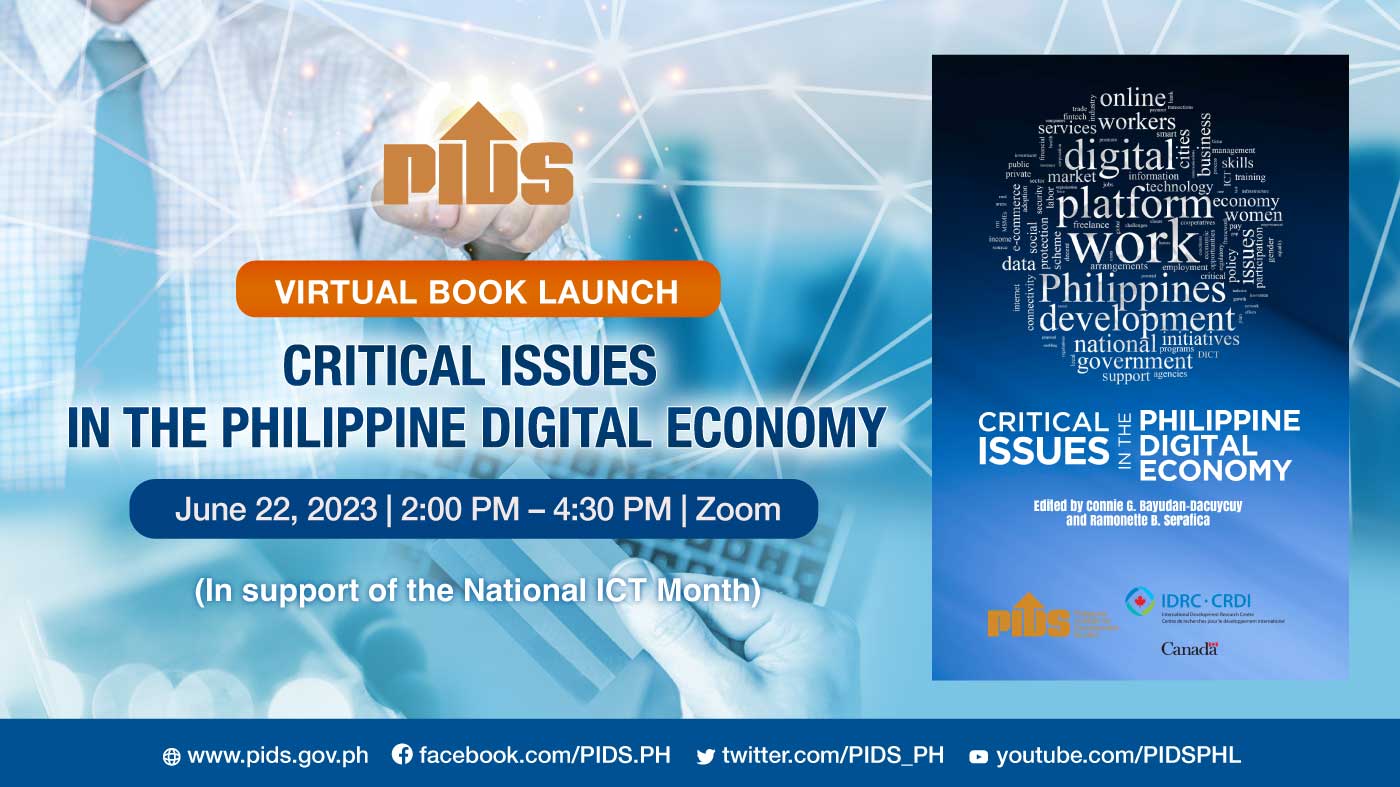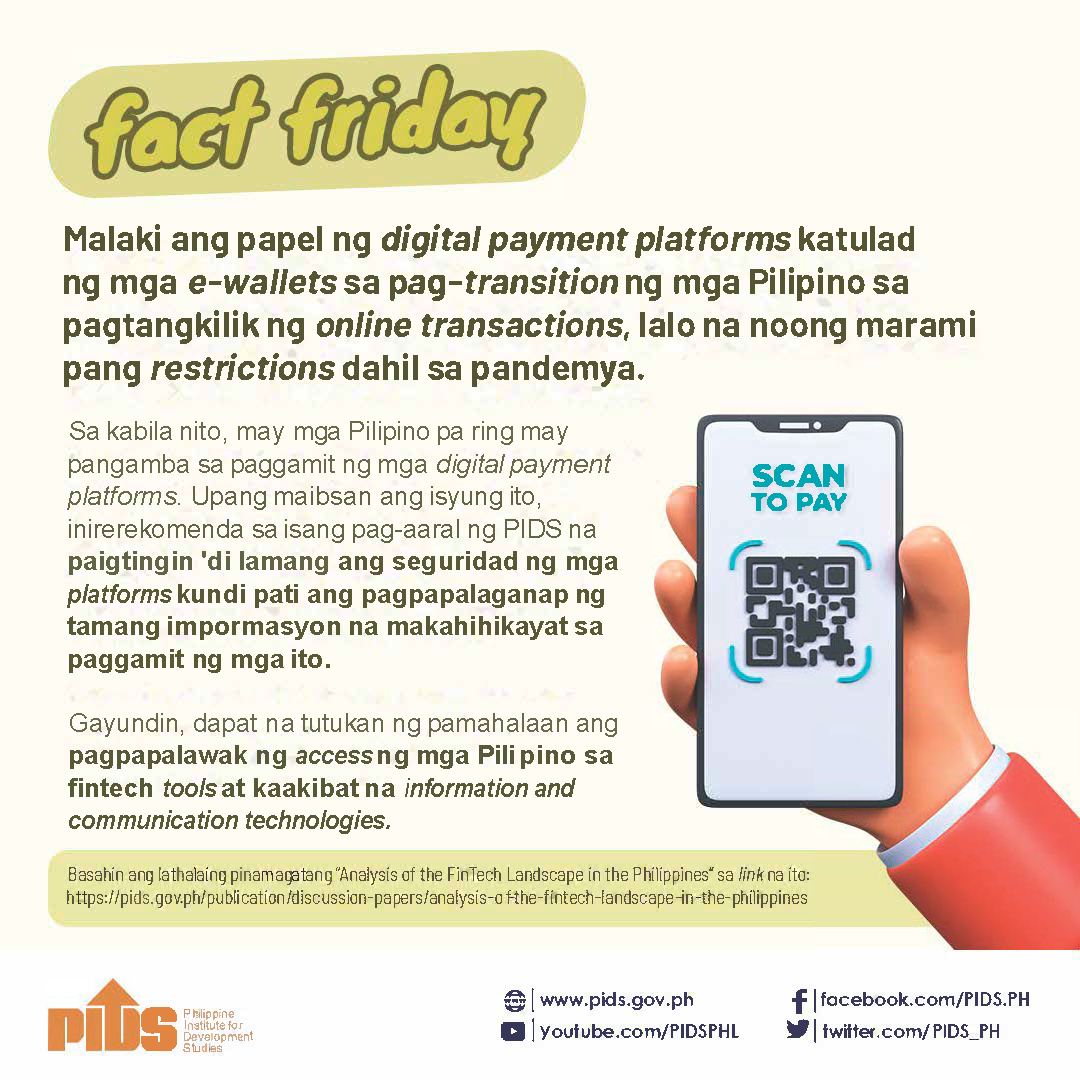The government should address issues and challenges in online work such as digital divide, the lack of digital infrastructure, and weak social protection schemes.
World Bank – Philippines senior economist Kevin Chua emphasized this during a recent webinar titled “Social Protection, Digital Divide, and Other Issues in Online/Platform Work” organized by the Philippine Institute for Development Studies (PIDS).
Chua, a discussant at the webinar, said the country benefits from digital economy in terms of employment opportunities, gender equality, and poverty eradication.
However, the high cost and the low quality of Internet connection service in the country “has contributed to the digital divide, which leads to unequal access to services delivered by the Internet”.
He also underscored the need to move up the online work value chain. According to the PIDS study titled “Online Work in the Philippines: Some Lessons in the Asian Context” presented at the webinar, many online workers are engaged in jobs that have low value-added. This makes the competition with peers in other regions tough for Filipino workers.
Chua said capacitating workers is important to help the country move up the value chain. He pointed out that this will be beneficial to employers because it will insulate them from the ‘race to the bottom’ competition among firms.
He agreed with the PIDS study authors led by Dr. Connie Bayudan-Dacucycuy on the need to create a sustainable ecosystem that encompasses skills development programs and training support initiatives for all types of workers.
“It means we need good infrastructure like fast, reliable, and affordable internet. Meanwhile, human capital development strategies should have flexible and updated curriculum, adequate training centers, and trainers… We also need business support and financing facilities for firms so that when opportunities arise, employers and employees can react with agility,” Chua said.
He also pushed for the promotion of social protection programs for online workers, urging the government to explore policies that could ensure health and safety coverage and protect the sustainability of pension programs.
Chua also highlighted the importance of online security.
“The government must ensure that users are protected from abuse and misuse of malicious people. It should set up a consumer protection framework and strong cybersecurity with a strong and effective grievance mechanism system,” he explained.
Chua added that building trust on new technologies could foster wider acceptance and usage of platforms. Addressing trust issues “will be easier” if people are digitally literate. Digital literacy, he noted, should cover basic information and communications technology skills and internet know-how to access online services.
WB exec urges PH gov’t to address online work issues amid pandemic












